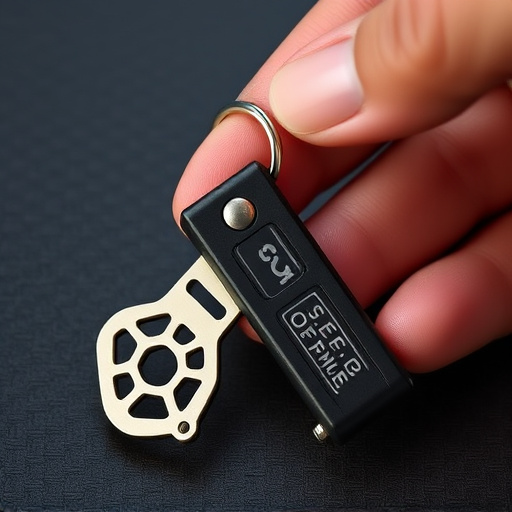The legal status of tactical keychain weapon techniques varies globally, with regions banning them entirely or permitting possession under strict conditions like age limits and licenses. US states and federal rules differ widely, impacting airport security and self-defense rights. Despite their relevance for personal safety in the digital age, users must stay informed about local regulations and undergo training to deploy these tools responsibly and legally.
In today’s world, personal safety is paramount. For those who prefer tactical keychain weapon techniques as a deterrent, understanding legal requirements is crucial. This article guides you through the intricate web of regulations, focusing on the legal framework for keychain weapons, state and federal restrictions, and ensuring consumer safety with tactical keychains. Stay informed to stay protected.
- Legal Framework for Keychain Weapons
- Understanding State and Federal Regulations
- Ensuring Consumer Safety with Tactical Keychains
Legal Framework for Keychain Weapons
The legal framework surrounding tactical keychain weapons varies significantly across jurisdictions, reflecting a delicate balance between personal safety and public concern. In many regions, these compact self-defense tools are subject to stringent regulations, with some countries outright banning them altogether. Others permit their possession but impose strict age restrictions, require specialized licenses, or mandate specific safety training for users. The diversity in legal requirements underscores the complex nature of keychain weapon techniques, which must adhere not just to physical design standards but also to a web of legal constraints.
Understanding the tactical application of these devices requires a comprehensive grasp of both their functionality and the legal context in which they operate. Users who employ keychain weapons for self-defense or other purposes must familiarize themselves with local laws to ensure compliance, thereby avoiding potential legal repercussions. This proactive approach not only safeguards individuals but also contributes to a responsible and informed community, where personal safety measures are both effective and legally sound.
Understanding State and Federal Regulations
When it comes to tactical keychain weapon techniques, understanding the legal landscape is paramount. Each state in the US has its own set of regulations governing the possession and use of self-defense tools like tactical keychains. Additionally, federal laws further delineate restrictions on certain types of weaponry. For instance, some states prohibit carrying knives or other sharp objects as a means of self-defense, while others have specific requirements for the type and size of self-defense weapons allowed.
Federal regulations, such as those set by the Transportation Security Administration (TSA), also come into play when considering tactical keychain weapon techniques. These rules govern what items are permissible in secure areas like airports. For example, certain states allow concealed carry of small firearms or tactical keychains for self-defense purposes, but these rights may be limited or non-existent in other states. Staying informed about these regulations is crucial to ensure compliance and avoid legal repercussions when employing tactical keychain weapon techniques.
Ensuring Consumer Safety with Tactical Keychains
In today’s digital era, where personal safety is a paramount concern, ensuring consumer safety with tactical keychain weapon techniques has become increasingly important. These keychains are designed to offer more than just a way to secure your keys; they serve as practical self-defense tools that can provide users with a sense of security in various situations. The market abounds with different types of tactical keychains, each equipped with unique features like flashlights, serrated edges, and even pepper spray mechanisms.
When it comes to legal requirements, understanding the regulations around carrying such devices is crucial. While some areas allow for open carry, others may have strict rules regarding hidden or concealed weapons. Users must familiarize themselves with local laws to ensure they are using their tactical keychains responsibly and legally. Additionally, proper training in tactical keychain weapon techniques is essential to guarantee effective deployment and minimize the risk of injury during an emergency.
When it comes to tactical keychain weapon techniques, navigating the legal landscape is paramount. Understanding both state and federal regulations ensures compliance and promotes consumer safety. By staying informed about the evolving Legal Framework for Keychain Weapons, users can responsibly enjoy the convenience of these compact self-defense tools while adhering to essential safety standards.
